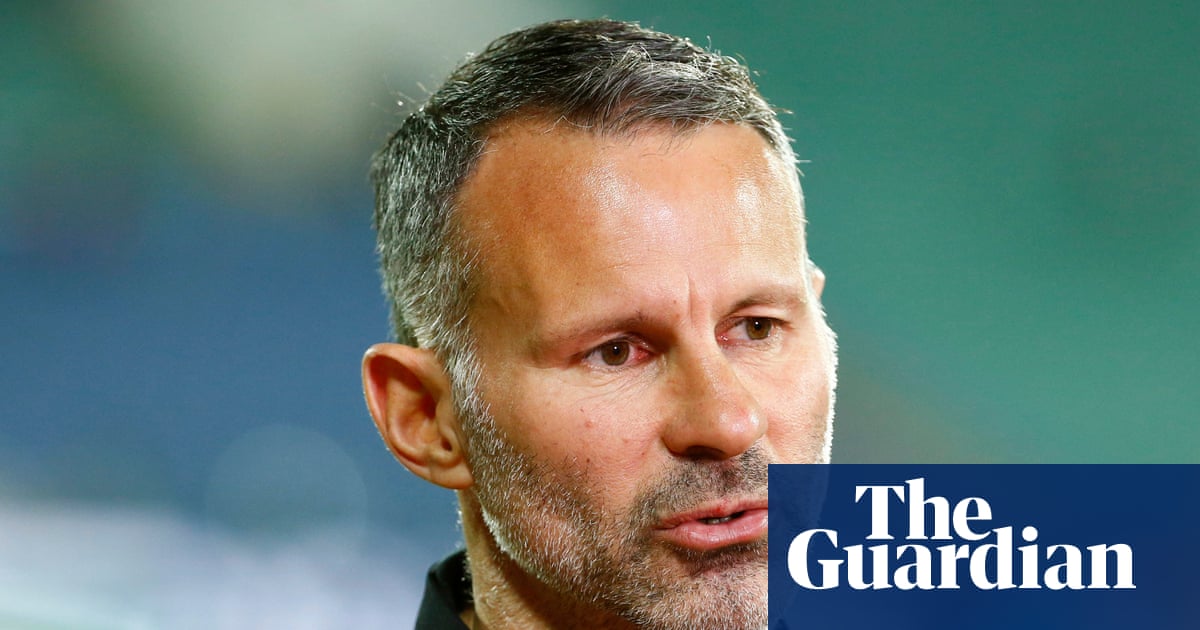
Jackson Peace, 21, is a student from the Isle of Wight
My home town on the Isle of Wight, one of the UK’s most deprived areas, and Bath, where I study at university, couldn’t be more different. But spend any time among the young people in these places, and you’ll notice an unmistakable similarity: a generation alienated from mainstream parties, with a vocal minority who find Reform’s message appealing.
Despite differences in demographics, young people in both areas are politically apathetic on the left as well as the right. At the University of Bath, the Conservative Association has welcomed Reform sympathisers but remains tiny. Far more students support the Left Union, but it still finds it difficult to channel that support into organised struggle. At Your Party meetings in both locations, meanwhile, turnout from young people is sparse.
It’s not that young people are flocking to Reform, but that parliamentary politics itself feels exhausted. Whether it’s the cost of rent in Bath or the scarcity of permanent work on the Isle of Wight, people see problems piling up and Westminster seems increasingly ineffective at resolving them. For some, Reform offers a narrative of rebellion, a way for people to vocalise their frustration, even if its targets are misplaced. But for most, disengagement is the name of the game. This isn’t to say that political energy has disappeared altogether. For example, local debates and campaigns around public transportation – ferries on the Island and buses in Bath – draw intense passion, including from young people. What’s dying isn’t politics per se, but faith in a parliamentary system that feels detached from people’s actual lives.
The answer won’t come from rebranding the same parties or lamenting extremism. We must rebuild politics where people are already fighting: in workplaces, universities and community campaigns. These are the spaces filled with potential, where we can organise together to improve our conditions. This won’t reach everyone – some will remain drawn to Reform’s simplistic answers – but it offers the only credible alternative: a politics rooted in solidarity rather than scapegoating.

Talia Woodin, 26, is an environmental activist based in north-east London
How can we convince people to change their minds about political and social issues? In the years I’ve spent campaigning, I’ve realised that the most effective strategy is storytelling. A compelling narrative is often the best way of encouraging people to look anew at an issue, or of winning them round to your way of seeing the world. Terrifyingly, the far right often does this most effectively.
Its straightforward and digestible narrative cuts through because it speaks directly to feelings of neglect and disenfranchisement that are particularly widespread among young people. Its messaging offers apparent solutions that don’t require a deep understanding of political theory to grasp. Meanwhile, the left gets tangled up in internal debates and abstract theories of change, losing sight of the need to meet people where they are – recognising their immediate material and emotional realities, and building up from there.
True change emerges from the ground up. We only need look at the recent controversies around Your Party to illustrate how party politics more often than not leads to disappointment. Even so, the remarkable recent performance of the Green party highlights the power of narrative. Zack Polanski has reached people through his simplicity and sincerity. In a recent interview with Channel 4, Polanski stated: “Nigel Farage is a one-man show, if I’m a one-man show I’ve absolutely failed as a leader.” It was the perfect encapsulation of what politics should be about – a statement about representation and participation that was almost impossible to refute from any end of the political spectrum.
In today’s climate of increasing social and economic instability, reimagining what it means to be British could be a starting point for challenging the divisive and persecutory language of Reform and the hard right. A video released by the Trades Union Congress last week that highlighted a workplace friendship between third-generation Irish and first-generation Pakistani colleagues was an effective example of this. By telling these sorts of stories, we can begin to replace fear and exclusion with empathy, connection and a shared sense of belonging.

Maebh Carey, 19 and based in Gateshead, is an organiser for the Youth Equality Coalition
For the past five months, I’ve been working with the Youth Equality Coalition (YEC), which unites leftwing young people against far-right activism. We put young people in contact with one another and help them organise demonstrations in solidarity with Palestine and asylum seekers, and we’ve been removing flags that were put up by the campaign group “Operation Raise the Colours”.
Much of the anger we see in modern Britain stems from a sense of isolation. Cuts to youth clubs and the more recent effects of the cost of living crisis have robbed young people of the opportunity to socialise, feeding into a collective sense of apathy about politics. Given how fragile the social fabric feels in Britain, it’s no wonder that so many people are now retreating online, where conspiracies and far-right content flourish.
Yet community-building alone isn’t enough. To stop the ascendancy of the hard right, it’s important to show the public what it would mean in government. The YEC has highlighted stories about the resentment synonymous with Reform, such as protests against Durham county council, a Reform-led council that recently abandoned its climate pledges. As the hard right achieves power and subsequently flounders, reporting its ineptitude will allow voters to make informed electoral choices.
Crucially – and this is where national politics comes in – it’s vital that we address the grievances that the right has so deftly exploited. Reform performs well in areas that are economically stagnant and often deindustrialised, and those voting for the party often see no solutions in mainstream politics. To counter its rise, our government should be properly funding public services, tackling the scourge of poverty and creating opportunities for young people in work and education. We all deserve better than the current status quo.

Rohan Sathyamoorthy, 20, is a student from south-west London
The recent news that Conservative student societies are struggling in the face of competition from Reform is just one sign of young people’s growing disillusionment with mainstream politics. Faced with sky-high rents, soaring tuition fees and collapsing graduate job opportunities, is it any wonder that they are defecting from the UK’s formerly dominant parties?
It’s worth remembering that this exodus is mostly to parties on the left. A recent YouGov poll of those aged 18-24 showed that 36% of young people would vote for the Green party in a general election, while only 8% would vote for Reform. Labour is just as much a victim of this growing disillusionment as the Conservatives. In some university campuses, left-leaning societies have replaced Labour Students: over the summer, the Manchester, Newcastle and Warwick Labour societies all severed ties with the Labour party.
This disaffection has been building for years, as mainstream parties have failed to offer solutions that tangibly improve young people’s prospects or quality of life. During the 2024 presidential election, Kamala Harris showed the world what happens when the establishment relies solely on chastising the right while offering little in the way of an alternative. A fatigue has set in among young people. We’ve been ignored and told that our demands – whether it’s a reduction in tuition fees, or political recognition of Israel’s genocidal crimes in Gaza – are too radical to be taken seriously. Only this month, for example, the liberal heroine Hillary Clinton said that students opposed to Israel were “deeply misinformed” and falling for TikTok propaganda on behalf of the Chinese state.
The resulting political vacuum will be filled by whoever dares to try. Ultimately, today’s young people reflect the political realities of a society in a state of terminal decline, and won’t be stopped by any amount of condemnation or intimidation from established institutions. As long as the status quo works against their interests, young people will keep looking for alternatives.
Xavi Mesquita, 20, is a student at the University of Edinburgh and a freelance writer
Reform has exploited the sense in which everything, from work to relationships, is now precarious. Ever since the pandemic, young people have been spending more time alone, scrolling endlessly through other people’s lives. Farage meets their alienation head-on. The Reform “doers and achievers” promise change for a stalled generation, while Farage rhapsodises about entrepreneurial ambition on TikTok feeds and self-help podcasts. He has positioned himself as the straight-talking champion of the left behind, strategically turning their alienation into a story of pride, grievance and aspiration.
Labour’s leadership, by contrast, feels managerial and airless. Ministers speak of “missions”, “foundations” and “working people” – abstract platitudes remote enough to convince anyone under 30 that nothing ever really changes. Whether it’s red or blue in power, politics appears washed out. That’s not only a political problem, but a cultural one. “Politics is downstream from culture,” or so the Breitbart doctrine goes. If so, Labour must reclaim the zeitgeist in a way that it is failing to do. The far right is growing not because of policy suggestions, but because its story is simple, emotional and everywhere.
Rather than condemn young people turning to populism, progressives should see hope in their desire for alternatives and build from it. That starts with visible investment – in social housing, youth services and spaces where community can exist. The adults may be back in charge, but early retirement looms unless they discover what it means to speak to a future, not just manage decline.

 2 months ago
41
2 months ago
41

















































